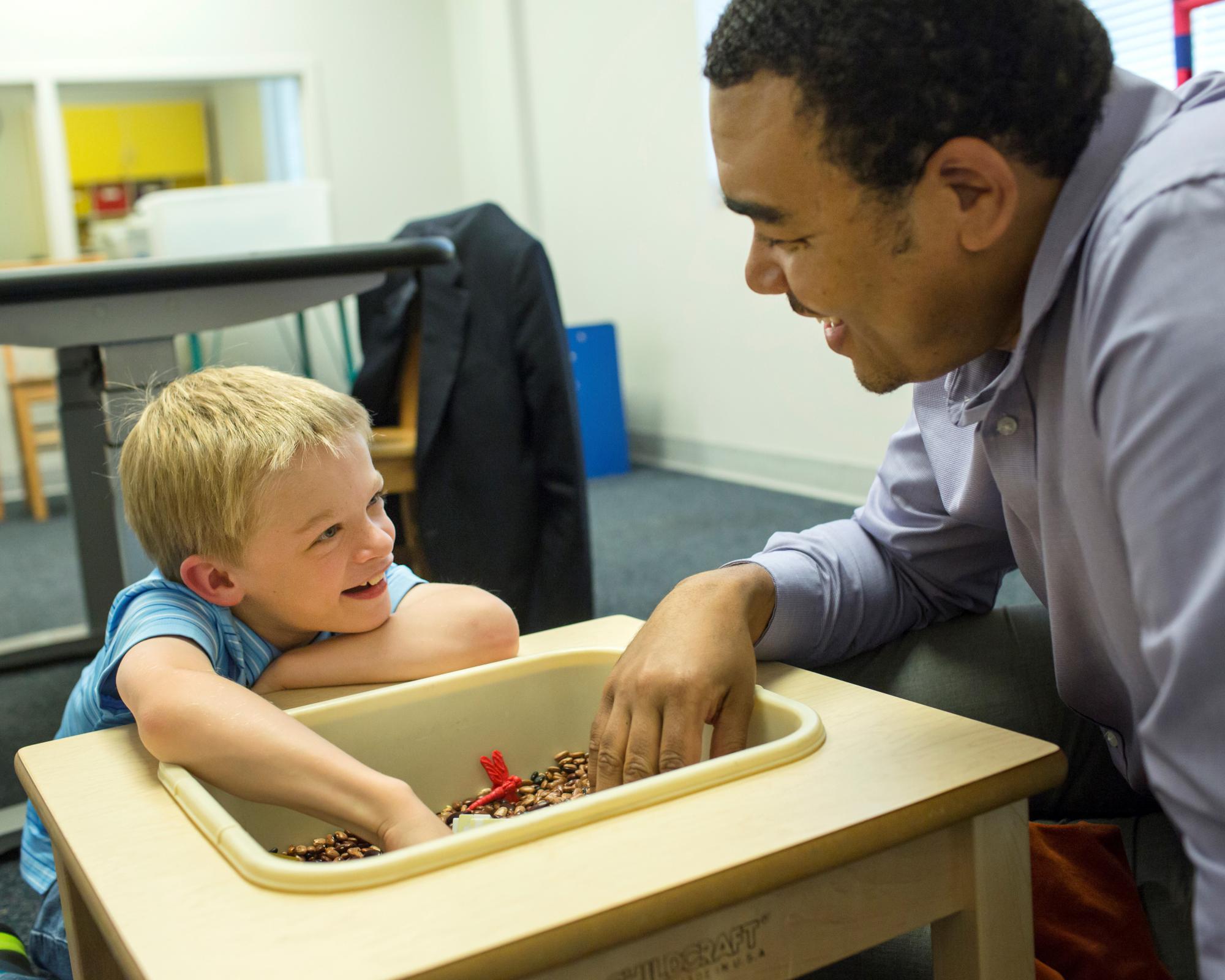
AFIRM Builds a Bridge From Autism Research to Real-World Practice
"I am absolutely blown away by the high-quality content and resources of the AFIRM modules," writes a special education teacher from New Zealand.
From an early interventionist in Canada: "I find the learning checkpoints and videos to be extremely helpful."
A parent from the U.S. says, "This was incredibly relevant and helpful to not only my learning the material but also to working with my own child with ASD!"
A program that has connected 80,000 teachers, parents, and program administrators in more than 170 countries with well-researched interventions for children and youth with autism spectrum disorder (ASD)—at no charge—has been made possible by a group of researchers right here at UNC-Chapel Hill.
In 2014, the National Professional Development Center on Autism Spectrum Disorder (NPDC) identified 27 interventions as "best practices" proven to enhance learning and promote positive developmental outcomes for children with ASD. By the next year, the Autism Focused Intervention Resources and Modules (AFIRM) project at the UNC Frank Porter Graham Child Development Institute had developed a way to help that information reach as many individuals as possible.
 With funding from the U.S. Office of Special Education Programs, a team that included Ann Sam, PhD, an advanced research scientist; Ann Cox, now retired; and Sam Odom, PhD, a senior research scientist, first organized the translation of these interventions into free, accessible, user-friendly learning modules.
With funding from the U.S. Office of Special Education Programs, a team that included Ann Sam, PhD, an advanced research scientist; Ann Cox, now retired; and Sam Odom, PhD, a senior research scientist, first organized the translation of these interventions into free, accessible, user-friendly learning modules.
A host of individuals, including Victoria Waters, autism projects coordinator, have spent the last three years developing the modules. Practitioners working with and educating children and youth with ASD can effectively use these interventions that are grounded in scientific literature to have the greatest impact.
"It's hard as a teacher, or anyone working with students, to know what works or what's most effective. AFIRM modules are designed to help anyone learn about the step-by-step process of planning for, using, and monitoring an evidence-based practice with learners with ASD from birth to age 22," says Sam.
"Implementation science tells us that this knowledge is the first step in a professional development process that leads to a practitioner's accurate use of the practice. The next step for many is receiving support from supervisors or coaches to use these practices."
AFIRM guides teachers, related service providers, and family members through a step-by-step process for each evidence-based practice. Implementation checklists, planning guides, lesson plans, data collection forms, and family support packages are just some of the free resources AFIRM offers in order to lift the burden off schools and parents through expertise and evidence-based support. AFIRM offers guidance on how to select the practice that will work best for each learner, and each module guides the practitioner through learning the basics of the practice, how to use it, and how to monitor progress.
In just five years, AFIRM's modules have shown a remarkable reach, garnering nearly 9 million page views from users all over the world. AFIRM also offers practitioners a free Certificate of Completion to meet professional development hours and licensing requirements. Sam says putting this expertise into practice in such an accessible way for teachers and other practitioners is central to improving the quality of life for children with ASD.
"Schools all over the world are facing funding restrictions, and there are not a lot of opportunities for professional development. AFIRM provides free downloadable resources that teachers may use to build their own skills as learners," says Sam. "This is the first step in building a bridge between research and practice."